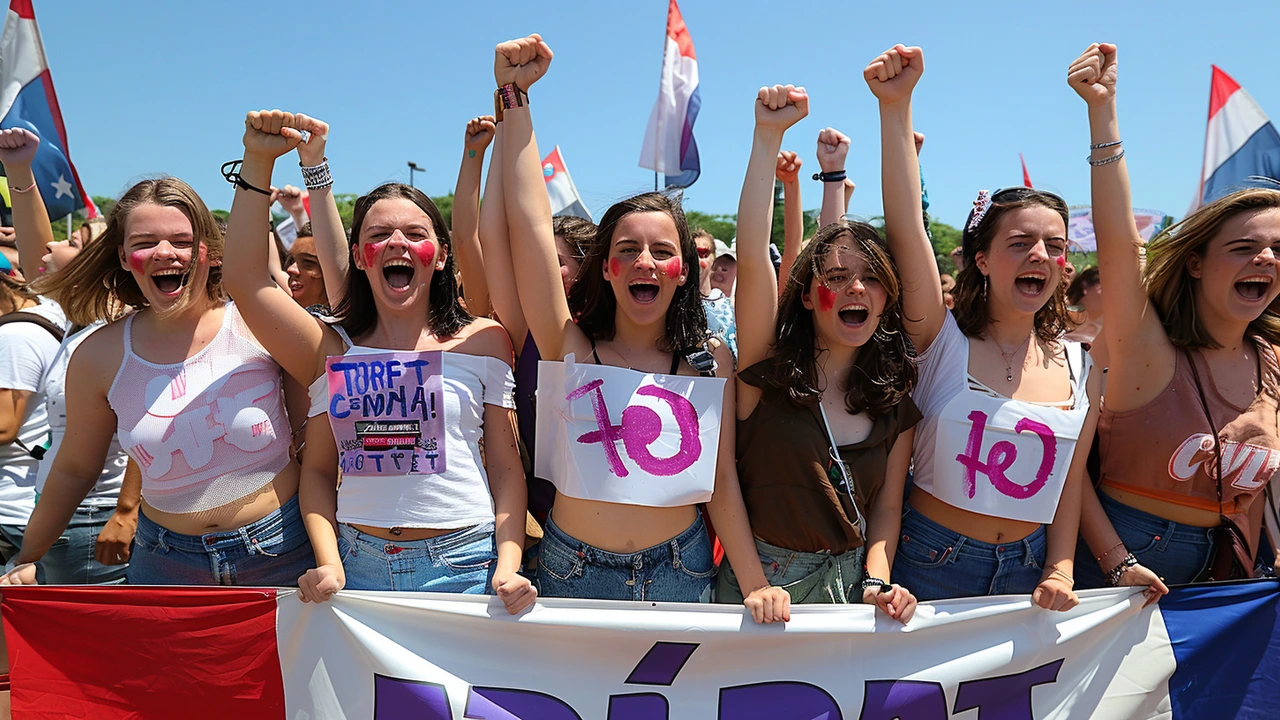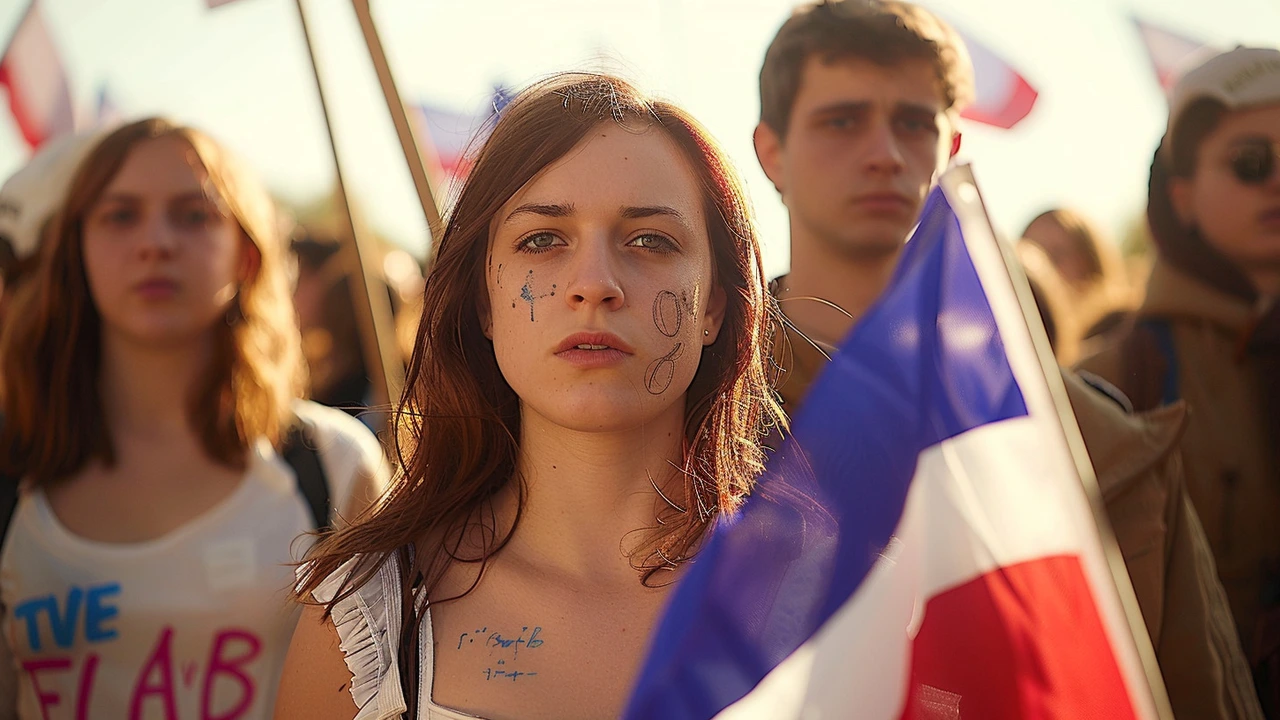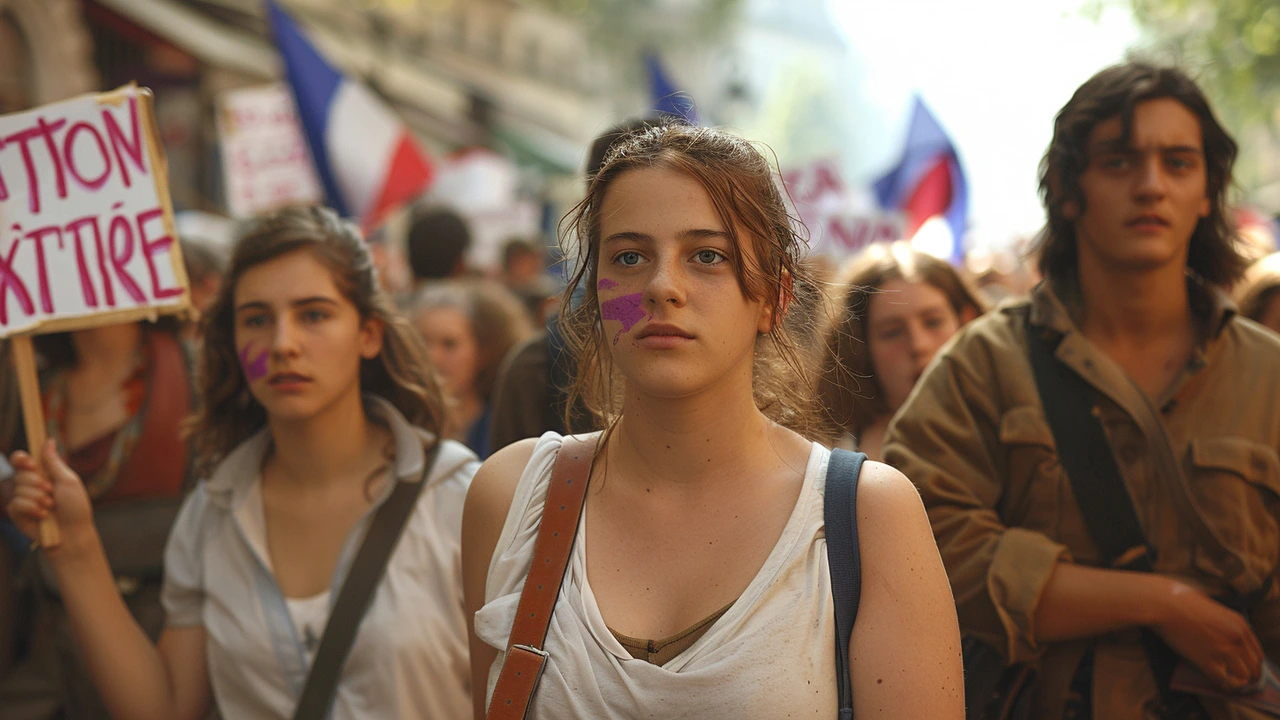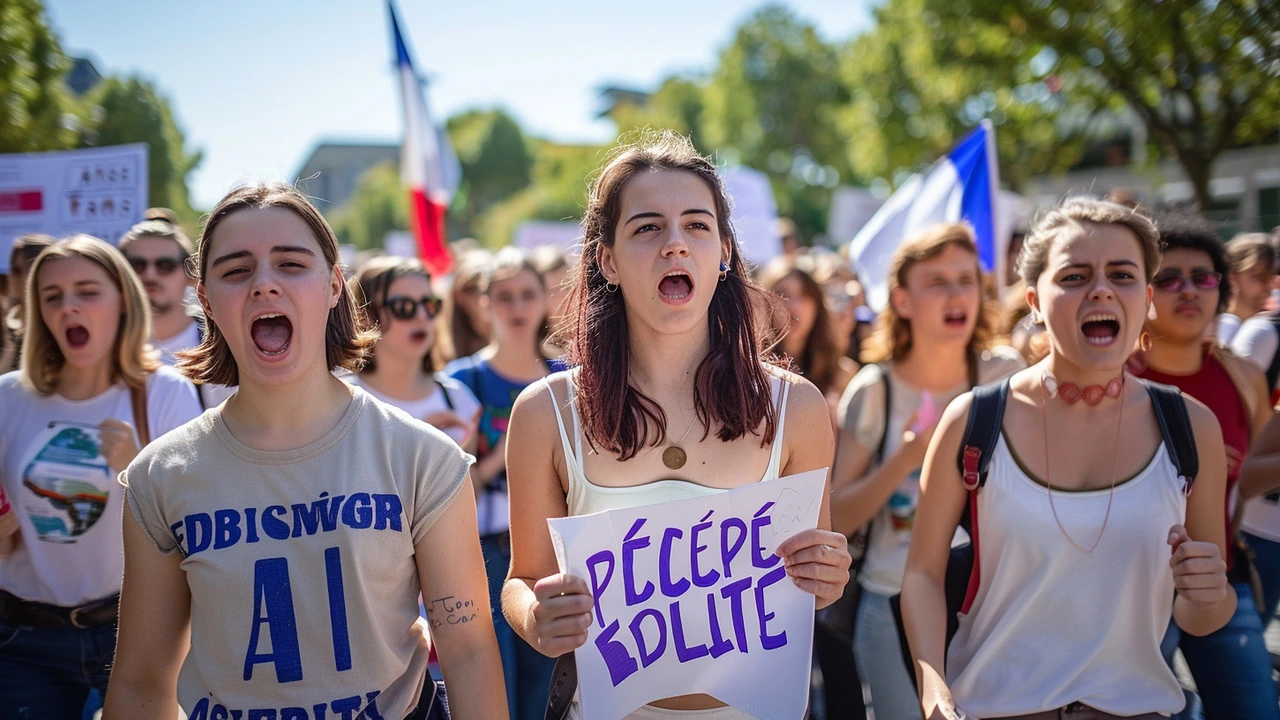Divided France: Protests and Political Maneuvering
France is currently experiencing significant political unrest as tens of thousands of protesters gather in cities across the country. The catalyst for these demonstrations is President Emmanuel Macron's decision to call for snap elections following his party's resounding defeat to the far-right National Rally (RN) in the recent European Parliament elections. The move is widely seen as a high-stakes gamble aiming to shift the political landscape, yet it has also deepened existing tensions.
In the European Parliament vote, the RN, led by Jordan Bardella, emerged as the clear victor with 31.4 percent of the votes, while Macron's Renaissance party coalition secured a mere 14.6 percent. This outcome has created an outpouring of frustration among left-wing voters who feel increasingly marginalized and are now rallying to prevent the RN from consolidating more power.
The Concerns of the Left
Parisian student Justine exemplifies the concerns many protesters have regarding the ideology of the RN. She views the party as being rooted in racism, extremism, and an overarching capitalist agenda that she believes threatens to unravel years of progress in women's rights and social equity. Many like Justine are alarmed by the potential implications of an RN-dominated government, fearing that Bardella's leadership could initiate a regression on numerous fronts including human rights and immigration policies.
The snap elections, scheduled in two rounds on June 30 and July 7, are anticipated to be a pivotal moment in French politics. Macron's strategy is apparently to mobilize voters to reject the far right, but the outcome is far from certain. Philippe Marliere, a political expert, has voiced skepticism about Macron's party securing a majority. In fact, there's a palpable concern that the RN could end up with even more seats, potentially enabling Bardella to become the next Prime Minister of France.

The Ideological Divide
The platform of the RN stands in stark opposition to Macron's vision for France. The party advocates stringent border controls, reduction in immigration, and a retreat from globalization. They also propose a scaling back of ecological policies, which they argue hamper economic growth. This right-wing agenda has struck a chord with a significant segment of the French populace, fueling their rise in popularity.
Critics argue that Macron's policies have inadvertently contributed to the normalization of far-right rhetoric. For instance, his immigration bill, which some view as restrictive, has been highlighted as bolstering the RN's narrative. This normalization is troubling for many citizens who fear it signifies a drift towards more extreme political ideologies.
A Nation at a Crossroads
The unfolding political drama has not been without its poignant personal stories. Take Beatrice Chappedelaine, a retired school teacher, who blames the current government's policies for the increasing insecurity, poverty, and indigence in French society. She believes these issues have provided fertile ground for the RN's rise as they promise solutions to the very problems many feel have been neglected by Macron's administration.
Chappedelaine's perspective is echoed by many who have joined the protests. The rallies are not just about opposing the far right but also about expressing dissatisfaction with the status quo under Macron. There is a palpable sense of urgency among the left-wing protesters who are trying to galvanize support to counter the far-right momentum.

The Election Gamble
As the country braces for the snap elections, the political stakes are enormously high. Macron's decision to call for these elections has been met with mixed reactions. Some view it as a necessary step to reconfigure a fractured political landscape, while others see it as a risky bet that might backfire disastrously.
The coming weeks are expected to be intensely political, with campaigns ramping up and both sides vying for the hearts and minds of the electorate. The left hopes to unite its fragmented base to present a formidable challenge to the RN, while the far right is capitalizing on the palpable discontent among many voters to further their agenda.
The Road Ahead
The future of France hangs in the balance as these snap elections could reshape the country's political framework dramatically. The far-right's growing influence is not only a French concern but has broader implications for Europe and beyond. The outcome of these elections will be closely watched globally, as they could signal a shift towards more nationalist policies in one of the EU's most influential member states.
For now, the streets remain alive with the sound of protest and the fervor of political discourse. The outcome of this turmoil will be determined in the coming rounds of elections, where the voice of the French people will resonate through their votes. Whether France will pivot back towards a centrist or left-wing government or find itself under a far-right leadership is a question that only time and the voters will answer.

Conclusion
As France stands at this critical juncture, the actions and decisions made in these pivotal weeks will shape the nation's future for years to come. The clash between the left and the far right, with Macron's centrist policies caught in the middle, presents a stark illustration of the divided political landscape. The snap elections, with all their attendant risks, provide both a challenge and an opportunity for the various political factions in France, and the world watches with bated breath.

Diego Vargas
June 26, 2024 AT 21:13the snap election timeline is actually quite strategic macron is trying to reset the parliamentary composition before the rn gains further momentum and the timing also forces parties to re‑align quickly – the law requires a two‑round system and the dates June 30 and July 7 are set to maximise turnout while still giving the centrist bloc a chance to regroup. also note that previous snap votes in france (like 2017) showed that voters can swing dramatically when faced with a clear alternative.
Alex Lee
June 26, 2024 AT 22:20the left just keeps crying about racism while ignoring that many french voters are fed up with endless protests and want real change. the rn is simply offering a clear plan and the left’s endless debates are making them look weak.
Vida Yamini
June 26, 2024 AT 23:27hey folks remember that activism is about solidarity and staying hopeful even when the political climate feels stormy we can keep pushing forward together because every voice matters and the unity we build today can shape tomorrow's outcomes let's keep sharing resources and stories of those on the ground who are demanding justice for women and minorities while also protecting the environment the left has historically championed these causes and now more than ever we need to amplify them we must stay resilient and not let fear divide us we can organize community meetings virtual town halls and collaborative projects that bring people from different backgrounds into a common purpose and when we see setbacks we learn from them and grow stronger as a movement keep the momentum alive and remind each other that history shows collective action can overturn even the most entrenched far‑right narratives stay encouraged stay loud and keep the conversation going
James Lawyer
June 27, 2024 AT 00:33It is noteworthy that the French Constitutional Council permits the calling of snap elections under Article 11, allowing the President to respond to an electoral impasse. Moreover, comparative analyses of prior French electoral cycles suggest that voter volatility can rise sharply when a single party breaches the traditional bipartisan equilibrium. Consequently, the upcoming vote may serve as a pivotal moment for rebalancing the parliamentary landscape.
Abby Culbertson
June 27, 2024 AT 01:40I cant stand seeing this political chaos tear our society apart.
Awolumate Muhammed Abayomi
June 27, 2024 AT 02:47Guys we should keep the energy up and keep supporting each other even if the news looks grim defnitely stay hopeful and keep pushing for better policies the future is ours to shape together.
Josh Tate
June 27, 2024 AT 03:53i hear the concerns about the rn's stance on immigration and climate, and i feel the weight of those worries. it's okay to feel anxious, but remember we're not alone in this fight. let's keep listening to each other's stories and stay united.
John Smith
June 27, 2024 AT 05:00actually the data from the 2022 European elections shows the rn increased its share by over 10 points compared to 2019 which is a clear indicator of shifting public sentiment. also, macron's centrist policies have historically led to voter fatigue, especially among younger demographics. this isn't just a political drama; it's a reflection of deeper socioeconomic fractures. understanding these trends is crucial for anyone following French politics.
Alex Soete
June 27, 2024 AT 06:07great points! staying motivated and sharing accurate info can make a huge difference. let’s keep the conversation lively and keep encouraging more people to get involved in the upcoming campaigns.